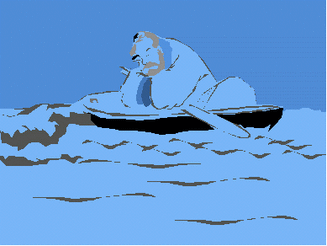 “When the water rises, so does the boat.”
“When the water rises, so does the boat.” Don’t we all need firm ground under our feet?
Don’t we guard our sturdy roots and reliable traditions?
Don’t we build homes, sweet homes, with solid walls and deep foundations to withstand adversity?
If you feel curious, click here.
[1] The precise quotation is "The more the water, the higher the boat." Yamamoto Tsunetomo, Hagakure, The Book of the Samurai (Translation By W. S. Wilson), Kodansha International, Tokyo..., 1979. As Daniel says, the boat is who you are, the identity that gives worth to your life.
 RSS Feed
RSS Feed